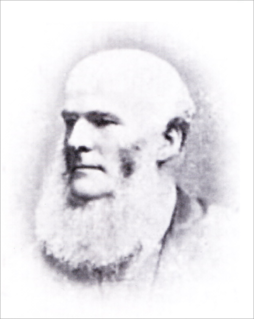A Quote by Phillips Brooks
He who thinks that he is being released from the work, and not set free in order that he may accomplish that work, mistakes the Christ from whom the freedom comes, mistakes the condition into which his soul is invited.
Related Quotes
My plea is that as we continue our search for truth, particularly we of the Church, that we look for strength and goodness rather than weakness and failings in those who did so great a work in their time. We recognize that our forefathers were human. They doubtless made mistakes. Some of them acknowledged making mistakes. But the mistakes were minor when compared with the marvelous work which they accomplished.
What self-righteous persons take to themselves, is the same work that Christ was engaged in when He was in His agony and bloody sweat, and when He died on the cross, which was the greatest thing that ever the eyes of angels beheld. Christ could accomplish other parts of this work without cost; but this part cost Him His life, as well as innumerable pains and labors. Yet this is the part which self-righteous persons go about to accomplish for themselves.
May we all be in such a condition of soul, such an attitude of heart as will fit us for any little work in which our gracious Lord may be pleased to use us- not seeking a place for ourselves, but lovingly serving all. The Lord, in His great mercy, grant that thus it may be, with all His beloved people!
Engineers are not superhuman. They make mistakes in their assumptions, in their calculations, in their conclusions. That they make mistakes is forgivable; that they catch them is imperative. Thus it is the essence of modern engineering not only to be able to check one's own work but also to have one's work checked and to be able to check the work of others.
Whom God legally saves, He experimentally saves; whom He justifies, them He also sanctifies. Where the righteousness of Christ is imputed to an individual, a principle of holiness is imparted to him; the former can only be ascertained by the latter. It is impossible to obtain a Scriptural knowledge that the merits of Christ's finished work are reckoned to my account, except by proving that the efficacy of the Holy Spirit's work is evident in my soul.
I am being bombed by questions of all kinds. I will try to be very concise and try to explain to the American people. We had a great number of mistakes in the economic fleld, naturally. I am not the critic. It is Fidel Castro, the one who has criticized repeatedly the mistakes we have made, and he explained why we have made them. We did not have a previous preparation. We made mistakes in agriculture. We made mistakes in industry. All these mistakes are being settled now.
The difference between the novice and the master is simply that the novice has not learnt, yet, how to do things in such a way that he can afford to make small mistakes. The master knows that the sequence of his actions will always allow him to cover his mistakes a little further down the line. It is this simple but essential knowledge which gives the work of a master carpenter its wonderful, smooth, relaxed, and almost unconcerned simplicity.





































